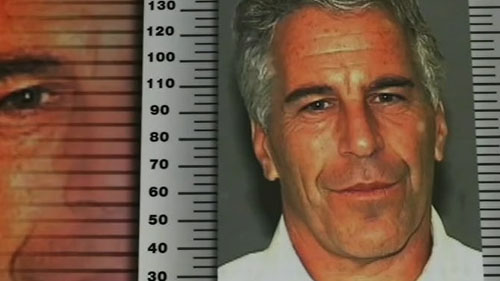| Recent Featured Videos and Articles | Eastern “Orthodoxy” Refuted | How To Avoid Sin | The Antichrist Identified! | What Fake Christians Get Wrong About Ephesians | Why So Many Can't Believe | “Magicians” Prove A Spiritual World Exists | Amazing Evidence For God | News Links |
| Vatican II “Catholic” Church Exposed | Steps To Convert | Outside The Church There Is No Salvation | E-Exchanges | The Holy Rosary | Padre Pio | Traditional Catholic Issues And Groups | Help Save Souls: Donate |  |









 " />
" /> " />
" /> " />
" /> " />
" /> " />
" />




St. Robert Bellarmine On The Death Penalty And Heretics
Bro. Peter Dimond
This article will contain some very interesting quotes from St. Robert Bellarmine’s work De Laicis (On The Laity). These are our translations from the Latin. Although these quotes focus almost exclusively on the death penalty for heretics, they of course prove the permissibility of the death penalty for certain other crimes as well. These passages also remind us that heresy is very serious. A reaffirmation of Catholic teaching on the death penalty is especially relevant now because Antipope Francis has officially taught that the death penalty is contrary to the Gospel. For proof that Francis teaches heresy on the matter of the death penalty, see the links at the end of this article. Francis’ rejection (and, indeed, condemnation) of the Catholic Church’s teaching on the death penalty is more proof that he is a manifest heretic and an antipope who does not profess the Catholic faith. Note that these quotes express Catholic teaching on what is permissible and appropriate for secular authorities to do in a state that is properly constituted. We are not advocating any violence. The death penalty would only be licitly carried out by the state acting appropriately, not by individuals. For each quote the English translation will be given followed by the Latin original.
St. Robert Bellarmine, De Laicis, Chap. 21: “John Hus (Article 14, read out in the Council of Constance, Session 13) asserted that it is not licit to hand over an incorrigible heretic to the secular power and permit him to be burned. Luther likewise (Article 33) asserted the same. Nor is the error new, for even the Donatists taught the same, (men such) as Parmenianus, Petilianus, and Gaudentius – as Augustine testifies in Book I of Against the Writings of Petilianus (Ch. 10), in Book 2 of Against the Letters of Gaudentius (Chs. 17 & 26), and Epistle 50 to Bonafacius. All Catholics teach the contrary… Therefore we will briefly show that incorrigible heretics, and especially relapsed ones, can and should be cast off by the Church and punished by the secular powers with temporal punishments, and even with death itself…”
Latin: “Joannes Huss. Art. 14 in concilio constantiensi sess. 13, recitato, asseruit, non licere haereticum incorrigibilem tradere saeculari potestati, et permittere comburendum. Idem Lutherus in art. 33 et in assertione ejusdem. Nec novus est error, nam etiam Donatistae olim idem docuerunt, ut Parmenianus, Petilianus et Gaudentius, ut Augustinus testator lib. 1. Contra literas Petiliani cap. 10. Lib. 2 contra epis. Gaudentii cap. 17. et. 26. et epist. 50 ad Bonafacium. Contrarium docent omnes catholici… Nos igitur breviter ostendemus, haereticos incorrigibiles, ac praesertim relapsos, posse ac debere ab Ecclesia rejici, et a saecularibus potestatibus, temporalibus poenis, atque ipsa etiam morte mulctari…”
Note that he says “all Catholics teach the contrary”. The permissibility of the death penalty for certain crimes (such as heresy) is a basic teaching of the Church. Those who would publicly deny it (such as Francis and the Vatican II Sect) are not Catholic.
St. Robert Bellarmine, De Laicis, Chap. 21: “In the third place it is proven by the laws of the Church... The Church defines that incorrigible heretics are to be handed to the secular power, so that they may be punished by them in due manner. Likewise Session 15 of the Council of Constance condemned the view of John Hus, and it handed John himself and Jerome of Prague to the secular power, by which both were burned alive. Lastly, Leo X condemned the articles of Luther [in which it was taught that ‘it’s against the will of the Spirit to burn a heretic’].”
Latin: “Probatur tertio legibus Ecclesiae cap. Ad abolendam, et cap. Excommunicamus, extra de haereticis, et in Sexto de haereticis cap. Super eo, definit Ecclesia, haereticos incorrigibiles saeculari potestati tradendos, ut ab eis debito modo puniantur. Item constantiense Concilium sess. 15 damnavit sententiam Joannis Huss; et ipsum Joannem et Hieronymum de Praga tradidit saeculari potestati, a qua ambo exusi fuerunt; denique Leo X articulos Lutheri damnavit.”
Here we see support for the death penalty in the actions of the Council of Constance and Pope Leo X against Luther.
St. Robert Bellarmine, De Laicis, Chap. 21: “St. Leo, in Epistle 91 to Turbius, Chap. 1: Deservedly, he says, our fathers, in whose times this wicked heresy broke out throughout the world acted immediately to drive out this impious madness from the universal Church; [this was a time] when princes of the world so detested this sacrilegious insanity that they overthrew its author and most of its disciples by the sword of public laws. And this severity for some time benefited ecclesiastical mildness, which although content in its priestly judgment flees bloody vengeance, is nevertheless helped by the severe ordinances of Christian princes, while sometimes they who fear corporal punishment will run back to a spiritual remedy.”
Latin: “S. Leo in epist. 91 ad Turbium cap. 1. Merito, inquit, patres nostri, sub quorum temporibus haeresis haec nefanda prorupit per totum mundum instanter agere, ut impius furor ab universa Ecclesia pelleretur; quando principes mundi sacrilegam amentiam ita destestati sunt, ut auctorem ejus, ac plerosque discipulos legum publicarum ense prosternerent; et profuit diu ista districtio ecclesiasticae lenitati, quae etsi sacerdotali contenta judicio cruentas refugit ultiones, severis tamen christianorum principum constitutionibus adjuvatur, dum ad spirituale nonnumquam recurrent remedium, qui timent corporale supplicium.”
In these words of Pope Leo the Great, cited by Bellarmine, we again find papal support for the death penalty in the case of heretics (and by extension for other severe crimes).
St. Robert Bellarmine, De Laicis, Chap. 21: “In Book 1, Epistle 72 [seems to be 74], to Gennadius Exarch of Africa, St. Gregory praises him because with great zeal he was persecuting heretics with arms, and he exhorts him to continue.”
Latin: “S. Gregorius lib. 1. Epist. 72, ad Gennadium exarchum Africae, laudat eum, quod magno zelo haereticos armis persequeretur, et hortatur ut pergat.”
Here we see an endorsement for the death penalty in the writings of Pope Gregory the Great.
St. Robert Bellarmine, De Laicis, Chap. 21: “Third: All hold that forgers merit death; but heretics are forgers of the word of God.”
Latin: “Tertio: Falsarii omnium judicio merentur mortem; at haeretici falsarii sunt verbi Dei.”
St. Robert Bellarmine, De Laicis, Chap. 21: “Now all these reasons support that heretics should be killed; for, in the first place, they harm their neighbors much more than any pirate or robber insofar as they kill souls. Indeed, they remove the foundation of every good and fill the republic with tumults, which necessarily follow from the diversity of religions.”
Latin: “Hae autem rationes omnes suadent haereticos occidendos; nam primum nocent proximis magis, quam ullus pirate vel latro, quandoquidem animas occidunt, immo tollunt fundamentum omnis boni, et rempub. tumultibus replent, qui necessario religionum diversitatem sequuntur.”
Bellarmine’s statement that tumults or negative consequences necessarily follow from the diversity of religions is quite a contrast to the words of the Vatican II antipopes. The Vatican II antipopes frequently describe religious diversity as a good thing and even as positively willed by God (e.g. see the heresy taught by Antipope John Paul II and Antipope Francis). The Vatican II religion is not the Catholic religion.
St. Robert Bellarmine, De Laicis, Chap. 21: “Lastly, it’s a benefit to obstinate heretics that they are removed from this life. For the longer they live, the more errors they invent, the more people they pervert, and the greater damnation they bring upon themselves.”
Latin: “Denique, haereticis obstinatis beneficium est, quod de hac vita tollantur; nam quo diutius vivunt, eo plures errores excogitant, plures pervertunt, et majorem sibi damnationem acquirunt.”
It is the clear teaching of Scripture and the Catholic Church that the death penalty is permissible and appropriate for certain crimes. Since those who profess the true Catholic faith hold that the death penalty is acceptable and appropriate in certain cases, those who condemn or reject the death penalty (e.g. Francis and the Vatican II Sect) do not profess the true faith. Therefore they cannot be considered to be inside the Catholic Church.
RELEVANT LINKS:
Francis says the position of the Catholic Church is against the death penalty
Antipope Francis Says The Death Penalty Is Contrary To The Gospel And That The Interpretation Of Doctrine Changes
Francis condemns the death penalty once again – Antipope Francis’ notable heresy from December 2018
EWTN admits Francis' altering of "The Catechism" to insert his new teaching outlawing the death penalty is a complete break with what the Catholic Church teaches about this issue - 37 minute video
EWTN admits Francis' teaching on the death penalty "is a clear contradiction of what the Church has taught" - 2 minute video
Sign up for our free e-mail list to see future vaticancatholic.com videos and articles.
Recent Content
^